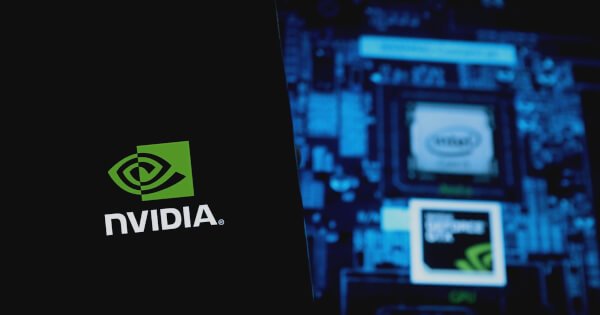
Tony Kim
Oct 06, 2025 15:24
NVIDIA introduces the Blackwell Decompression Engine and nvCOMP, enhancing data decompression efficiency and freeing up compute resources, crucial for data-intensive applications.
NVIDIA has launched a groundbreaking solution to tackle the challenges of data decompression, an essential process in data management that often strains computing resources. The introduction of the hardware Decompression Engine (DE) in the NVIDIA Blackwell architecture, paired with the nvCOMP library, aims to optimize this process, according to NVIDIA’s official blog.
Revolutionizing Decompression with Blackwell
The Blackwell architecture’s DE is designed to accelerate decompression of widely used formats such as Snappy, LZ4, and Deflate-based streams. By handling decompression in hardware, the DE significantly reduces the load on streaming multiprocessor (SM) resources, allowing for enhanced compute efficiency. This hardware block integrates into the copy engine, enabling compressed data to be transferred directly and decompressed in transit, effectively eliminating the need for sequential host-to-device copies.
This approach not only boosts raw data throughput but also facilitates concurrent data movement and compute operations. Applications in fields like high-performance computing, deep learning, and genomics can process data at the bandwidth of the latest Blackwell GPUs without encountering input/output bottlenecks.
nvCOMP: GPU-Accelerated Compression
The nvCOMP library offers GPU-accelerated routines for compression and decompression, supporting a variety of standard and NVIDIA-optimized formats. It enables developers to write portable code that can adapt as the DE becomes available across more GPUs. Currently, the DE supports select GPUs, including the B200, B300, GB200, and GB300 models.
Utilizing nvCOMP’s APIs allows developers to leverage the DE’s capabilities without altering existing code. If the DE is unavailable, nvCOMP defaults to its accelerated SM-based implementations, ensuring consistent performance enhancements.
Optimizing Buffer Management
To maximize performance, developers should use nvCOMP with appropriate buffer allocation strategies. The DE requires specific buffer types, such as those allocated with cudaMallocFromPoolAsync or cuMemCreate, to function optimally. These allocations facilitate device-to-device decompression and can handle host-to-device transfers with careful setup.
Best practices include batching buffers from the same allocations to minimize host driver launch overhead. Developers should also consider the DE’s synchronization requirements, as nvCOMP APIs synchronize with the calling stream for efficient decompression results.
Comparative Performance Insights
The DE offers superior decompression speeds compared to SMs, thanks to its dedicated execution units. Performance tests on the Silesia benchmark for LZ4, Deflate, and Snappy algorithms showcase the DE’s capability to handle large datasets efficiently, outperforming SMs in scenarios demanding high throughput.
As NVIDIA continues to refine these technologies, further software optimizations are anticipated, particularly for the Deflate and LZ4 formats, enhancing the nvCOMP library’s utility.
Conclusion
NVIDIA’s Blackwell Decompression Engine and nvCOMP library represent a significant leap forward in data decompression technology. By offloading decompression tasks to dedicated hardware, NVIDIA not only accelerates data processing but also liberates GPU resources for other computational tasks. This development promises smoother workflows and enhanced performance for data-intensive applications.
Image source: Shutterstock

